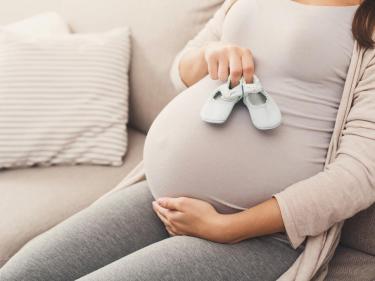7 Insemination Tips
.jpg) This guest post is from Fertility Expert, Dr. Lee Kao of Laurel Fertility Care, a local fertility practice with offices in Mill Valley, San Francisco, and Modesto. Visit them online at www.laurelfertility.com.
This guest post is from Fertility Expert, Dr. Lee Kao of Laurel Fertility Care, a local fertility practice with offices in Mill Valley, San Francisco, and Modesto. Visit them online at www.laurelfertility.com.
The journey to conceiving for child number two (or more) can be stressful and difficult. However, parents can make small changes and help grow their parenthood dreams. Below are some suggested tips from Dr. Lee Kao of Laurel Fertility Care to help grow your fertility success:
- Take daily multiple vitamins at least three months prior to attempting pregnancy. Vitamins like folic acid, a B-complex vitamin, helps produce red blood cells and facilitates cell production and division. Research has shown that intake of folic acid reduces pregnancy complications like preeclampsia, certain kinds of anemia, and Neural Tube Defects. It also facilitates healthy fetus growth through reducing Neural Tube Defects.
- Avoid cigarette and alcohol and limit caffeine intake. According to research, a women's probability to conceive reduces with alcohol consumption - even five drinks or less per week affects conception probability. Smoking not only decreases a woman's fertility but also delays the average time to conceive. Overall, low to moderate caffeine intake (<300mg) doesn't reduce a woman's chance to become pregnant but moderation is key.
- Avoid strenuous exertion before and after insemination. Extreme exercising like running marathon distances has been shown to disrupt ovulation cycles. Balanced exercise and diet helps maintain consistent ovulation cycles for family planning.
- Refrain from taking pain killers/anti-inflammatory/antipyretics containing NSAIDs (non-steroidal anti-inflammatory drugs) like ibuprofen. Multiple case studies from St. Thomas' Hospital in London, UK showed that withdrawing use of NSAID led to increased fertility success.
- Avoid douching before insemination and using vaginal lubricant of any kind. Douching changes the natural balance of the vaginal bacterial flora and can increase harmful bacteria, leading to infections of the ovaries and fallopian tubes. Research has linked reduced fertility with vaginal douching but no firm explanations have been provided for this correlation. Also, refrain from using vaginal lubricants. Most vaginal lubricants can actually damage sperm and reduce conception success.
- Time your insemination for days 11-15* of your cycle. If you're attempting one insemination, it is best to plan for day 13 or 14* of your cycle. However, if you are attempting multiple inseminations, try day 11, 13, or 15* of your cycle. Keep in mind that it's most effective to inseminate earlier in your cycle rather than later. *These calculations have been computed based from a female with a 28-day cycle.
- Consult a healthcare provider before insemination. If you choose to do an insemination at home, visit your ob/gyn beforehand to gather insemination instructions. Women who try to inseminate at home can encounter trauma and infection. The success rate of insemination is much better at a doctor's office because it is done as intrauterine insemination instead of intravaginal insemination.
Additional reading and sources:
http://www.webmd.com/baby/folic-acid-and-pregnancy
https://www.ncbi.nlm.nih.gov/pmc/articles/PMC28642/
http://www.webmd.com/infertility-and-reproduction/features/getting-pregnant-ways-to-improve-your-fertility.
http://cerhr.niehs.nih.gov/common/caffeine.html#CaffeineandFertility
http://rheumatology.oxfordjournals.org/cgi/reprint/39/8/880
http://www.cvshealthresources.com/topic/douching#s13
http://www.ncbi.nlm.nih.gov/pmc/articles/PMC1380405/
http://www.webmd.com/infertility-and-reproduction/news/20051019/some-vaginal-lubricants-may-damage-sperm






